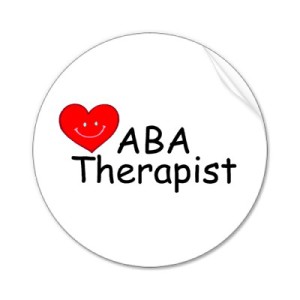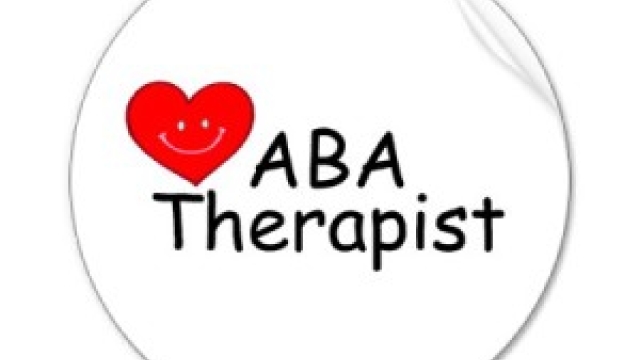Breaking Bad Habits: How Applied Behavior Analysis Can Help
Are you struggling to break free from stubborn habits that seem to hold you back? Perhaps you find yourself constantly engaging in self-defeating behaviors or struggling to maintain positive changes in your life. The good news is that there is a powerful tool that can guide you on your journey towards lasting behavioral change: Applied Behavior Analysis (ABA) therapy.
ABA therapy, also known as Applied Behavior Analysis, is a scientifically proven method that focuses on understanding how behaviors are learned and can be modified. By examining the interactions between an individual and their environment, ABA therapists are able to identify patterns and triggers that contribute to the development and maintenance of undesirable habits. From there, they work collaboratively with clients to design tailored interventions that promote positive behavior change.
One of the key principles of ABA therapy is the concept of positive reinforcement. By utilizing positive reinforcement techniques, therapists help individuals replace undesirable behaviors with more adaptive ones. This involves identifying and implementing rewards or incentives that are meaningful to the individual, such as praise, tokens, or privileges, to reinforce desired behaviors. Through consistent practice and reinforcement, new habits can be established, gradually overshadowing old patterns.
Moreover, ABA therapy places great emphasis on data collection and analysis. Therapists systematically gather information about the target behavior, measuring its frequency, intensity, and duration. This data-driven approach provides valuable insights into progress and allows therapists to make informed decisions about adjustments to the treatment plan. By constantly reassessing and adapting the intervention, ABA therapy ensures that individuals receive the most effective support tailored to their unique needs.
In conclusion, if you are ready to break free from bad habits and embark on a transformative journey towards positive change, consider incorporating Applied Behavior Analysis into your life. With its evidence-based practices, emphasis on positive reinforcement, and data-driven approach, ABA therapy offers a promising path towards lasting behavioral modification. So why wait? Take that first step today and unlock your potential for personal growth and self-improvement.
Understanding Applied Behavior Analysis

Applied Behavior Analysis, also known as ABA therapy, is a systematic approach that aims to understand and modify behavior, particularly in individuals with developmental disorders such as autism spectrum disorder. By analyzing the environmental factors that influence behavior, ABA therapy seeks to promote positive and meaningful changes.
With the principles of Applied Behavior Analysis, therapists observe and identify specific patterns of behavior. This includes examining what triggers certain behaviors and the consequences that follow. By gathering data and analyzing these patterns, ABA practitioners gain valuable insights into the functions and purposes of behaviors.
Based on this understanding, Applied Behavior Analysis employs a variety of techniques and strategies to help individuals replace unwanted behaviors with more desirable ones. Positive reinforcement plays a crucial role in this process, as it aims to enhance the likelihood of desired behaviors occurring again in the future.
ABA therapy is highly individualized, focusing on the unique needs and goals of each person. It is implemented in diverse settings, including homes, schools, and clinics, with the aim of fostering positive behavior change and improving overall quality of life.
Overall, Applied Behavior Analysis provides a scientifically proven framework for understanding and modifying behavior. Through careful observation, data analysis, and the implementation of tailored interventions, ABA therapy offers individuals the opportunity to break free from negative patterns and develop more adaptive behaviors.
The Benefits of ABA Therapy
Applied Behavior Analysis (ABA) therapy is a powerful approach that has proven to be highly effective in addressing and modifying behaviors in individuals of all ages. Through its systematic and evidence-based techniques, ABA therapy offers numerous benefits for those seeking to break bad habits and develop positive behaviors.
First and foremost, ABA therapy provides individuals with a structured and supportive environment for behavior change. With the guidance of trained therapists, individuals undergoing ABA therapy receive personalized attention and support. This individualized approach allows for the identification of specific behaviors, their underlying causes, and the development of tailored interventions to address these issues.
Another key benefit of ABA therapy is its focus on positive reinforcement. By leveraging positive reinforcement techniques, ABA therapy not only helps individuals reduce undesirable behaviors but also encourages the development of new and more constructive habits. Reinforcing positive behaviors enables individuals to learn and apply new skills effectively, leading to long-term behavior change.
Furthermore, ABA therapy promotes generalization, which is the transfer of learned skills and behaviors to various settings and situations. This means that the skills and behaviors acquired through ABA therapy can be implemented in different contexts, improving an individual’s overall functioning and adaptability. The ability to generalize skills helps individuals maintain progress and independence even outside of formal therapy sessions.
In summary, ABA therapy offers a range of benefits for individuals looking to break bad habits and foster positive change. Its structured approach, emphasis on positive reinforcement, and focus on generalization contribute to its efficacy in promoting lasting behavior change. By harnessing the power of Applied Behavior Analysis, individuals can overcome challenges and cultivate healthy and adaptive habits.
Applying ABA Techniques in Daily Life
Incorporating Applied Behavior Analysis (ABA) techniques into our daily lives can be highly beneficial for breaking bad habits and fostering positive behavior changes. By utilizing principles from ABA therapy, we can effectively modify our actions and reinforce desirable behaviors. Here are three ways you can apply ABA techniques in your everyday life:
-
Setting Clear Goals: Begin by identifying the specific habits or behaviors you want to change or improve upon. Clear and specific goals provide a roadmap for implementing ABA techniques. For example, if you aim to develop a regular exercise routine, set a realistic target of exercising for 30 minutes daily. By defining clear objectives, you create a framework that guides your actions and helps you monitor your progress.
-
Implementing Positive Reinforcement: A crucial aspect of ABA is the use of positive reinforcement to encourage desired behaviors. Positive reinforcement involves identifying and rewarding behaviors that align with your goals. For instance, if your objective is to reduce procrastination, reward yourself with a short break or a favorite snack after completing a task. By associating positive rewards with favorable actions, you motivate yourself to repeat those behaviors more consistently.
-
Utilizing Behavior Tracking: Keeping track of your behaviors and progress is essential for successful behavior change. Trackers can be as simple as jotting down your actions in a journal or using smartphone apps that record your habits. Through behavior tracking, you gain insight into patterns and triggers that may contribute to unwanted behaviors. This information enables you to develop strategies for avoiding or substituting negative behaviors with more positive ones.
ABA therapy for behavior problems
By applying ABA techniques in our daily lives, we can break bad habits and cultivate lasting positive behaviors. Setting clear goals, implementing positive reinforcement, and utilizing behavior tracking help us take charge of our actions and steer ourselves towards personal growth and improvement.
